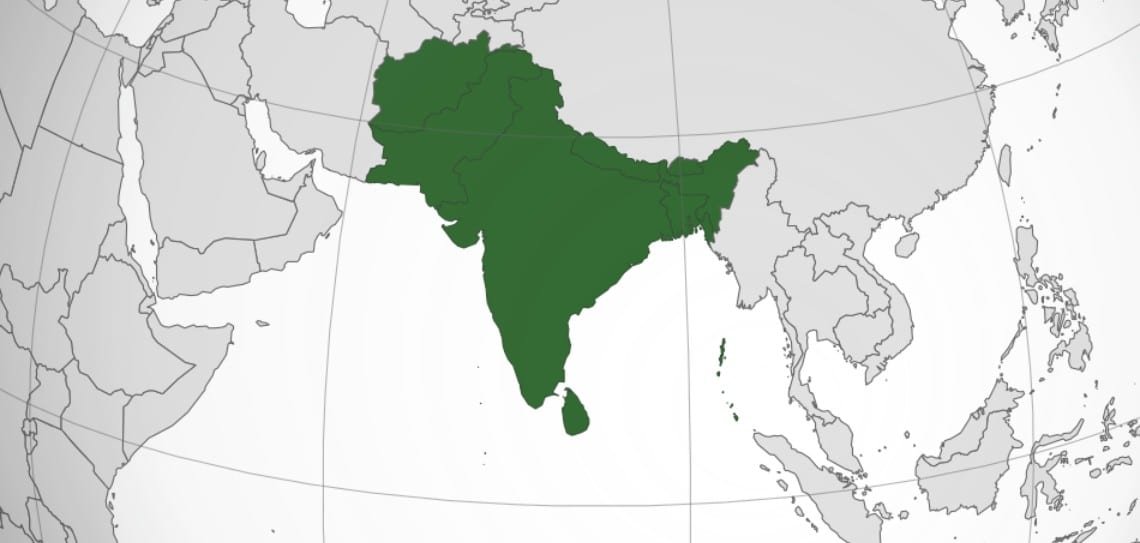
By Sajjad Shaukat Pak VT
Pakistan’s media entities did not give much coverage to a US intelligence report, entitled ‘The Global Trends’, released on April 7, this year, which warned that “nuclear-armed neighbours India and Pakistan might engage in a large-scale war unwittingly”.
The annual threat assessment report–2021 which was prepared by the US government’s National Intelligence Council and also sent to Congress said: “the ability of some militant outfits to conduct attacks, New Delhi’s resolve to retaliate against Islamabad after such an attack and Islamabad’s determination to defend itself are likely to persist and may increase in the next five years.”
It, particularly, warned: “Miscalculation by both governments could prompt a breakdown in the deterrence that has restricted conflict to levels each side judges it can manage.”
The report wrote: “the US policy in Afghanistan is likely to impact the neighbouring countries; especially India and Pakistan…if a security vacuum emerges in Afghanistan that results in a civil war between the Taliban and its Afghan opponents…would fuel political tensions and conflict in western Pakistan and sharpen the India-Pakistan rivalry.”
The report added “India and China may also slip into a conflict that neither government intends, especially if military forces escalate a conflict quickly to challenge each other on a critical part of the contested border.”
Notably, during the heightened days of the Cold War, many crises arose in Suez Canal, Korea, Cuba and Vietnam when the US and the former Soviet Union were willing to use atomic weapons, but, they stopped due to the fear of nuclear war which could eliminate both the superpowers. Hence, they preferred to resolve their differences through diplomacy by following the doctrine of nuclear deterrence, popularly known as balance of terror.
Likewise, many occasions came between Pakistan and India during the Kargil crisis of 1998, Indian parliament’s attack by the militants in 2001 and particularly in 2008 in the post-Mumbai terror attacks when New Delhi started a blame game against Islamabad in wake of its highly provocative actions like mobilization of troops. Pakistan had also taken defensive steps to meet any prospective aggression. But, India failed in implementing its war-like designs, because, Islamabad also possesses nuclear weapons.
Now, situation is very dangerous, as since Narendar Modi, the leader of the ruling party BJP, became Indian prime minister, he has been following extremist policies by ignoring the doctrine of nuclear deterrence vis-à-vis Pakistan and China.
Very tensions increased between India and Pakistan, India and China on August 5, 2019, when Indian extremist government revoked articles 35A and 370 of the Constitution, which gave a special status to the disputed territory of the Indian Illegally Occupied Jammu and Kashmir (IIOJK). Indian government bifurcated Jammu and Kashmir into two union territories—Jammu and Kashmir and Ladakh to be ruled by the federal government. New Delhi also issued an infamous map which displayed these divisions.
Besides Pakistan, China also rejected the Indian malicious acts as “unlawful and void”, saying that India’s decision to “include” some of China’s territory into its administrative jurisdiction “challenged” Beijing’s sovereignty.
India had escalated tensions with Islamabad especially in the aftermath of the false flag terror attack at Puwama in the IIOJK. On February 27, 2019, in response to the Indian so-called pre-emptive air strike in the town of Balakot, close to the border with Pakistan’s sector of Kashmir, Pakistan Air Force (PAF) shot down two Indian Air Force (IAF) fighter jets and launched aerial strikes at six targets in the IIOJK.
Indian forces had also accelerated shelling inside Pakistani side of Kashmir by violating the ceasefire agreement across the Line of Control (LoC) and compelled Pakistan Army to give a matching reply. In the recent past, the Director Generals of Military Operations of Pakistan and India had agreed to strictly observe the 2003 ceasefire agreement at the LoC and other sectors, including Working Boundary from the midnight of February 24 and 25, this year. But, unless resolved, Kashmir will remain a nuclear flashpoint.
Similarly, drastic tensions arose between New Delhi and Beijing on May 5, last year, when India occupied various areas, adjacent to the Line of Actual Control (LAC). In response, Chinese forces moved into the regions along the eastern Ladakh border and vacated the disputed territories.
After a number of rounds of talks, India and China completed their withdrawal from the Pangong Tso Lake area on February 20, 2021 in accordance with the agreement, signed by their commanders. While, other parts of the border remain unsettled, and encouraged by the US President Joe Biden’s anti-China, Indian forces are making preparations for an all-out war with China. However, LAC is a nuclear flashpoint between the two countries.
Last year, India’s Home Minister Shri Amit Shah had threatened of conducting surgical strikes inside Pakistani territory.
Chief of Army Staff Gen. Qamar Javed Bajwa, DG of ISPR, Maj-Gen. Babar Iftikhar, Prime Minister Imran Khan and Foreign Minister Shah Mahmood Qureshi have repeatedly stated that Pakistan’s armed forces “are ready to respond any Indian aggression with full might…India is planning false flag operation-Pulwama-II…India faced great humiliation in the military standoff with China…India is facing many internal challenges especially after the emergence of coronavirus…many issues have emerged in India after the August 5, 2019 move, which revoked the special status of Indian Occupied Jammu and Kashmir….Now they [India] think the best way is to divert the attention towards Pakistan…While their quadcopters have also violated airspace on different occasions.”
Hinting towards Pakistan and China, Indian national security advisor Ajit Doval recently stated: “New India doctrine will take battle to foreign soil.”
And Indian ex-Army Chief General Deepak Kapoor had stated on December 29, 2010 that the Indian army “is now revising its five-year old doctrine” and is preparing for a “possible two-front war with China and Pakistan.”
In a latest statement, UN Secretary-General Antonio Guterres who urged the resolution of Kashmir dispute in accordance with the UN resolutions, warned that “any military confrontation between two nuclear powers-Pakistan and India would be a disaster for both countries and the whole world.
In this backdrop, the tenets of nuclear deference cannot be applied to South Asia where Modi’s risky strategy could result into a full-scale conventional war with Pakistan or China or at a time, with both the countries, which may culminate into atomic war, enveloping the entire region and probably the whole world.
Sajjad Shaukat writes on international affairs and is author of the book: US vs Islamic Militants, Invisible Balance of Power: Dangerous Shift in International Relations
Email: sajjad_logic@yahoo.com

Sajjad Shaukat writes on international affairs and is the author of the book: US vs Islamic Militants, Invisible Balance of Power: Dangerous Shift in International Relations and can be reached at sajjad_logic@yahoo.com
ATTENTION READERS
We See The World From All Sides and Want YOU To Be Fully InformedIn fact, intentional disinformation is a disgraceful scourge in media today. So to assuage any possible errant incorrect information posted herein, we strongly encourage you to seek corroboration from other non-VT sources before forming an educated opinion.
About VT - Policies & Disclosures - Comment Policy




Looks like the U.S. Security establishment clutching at straws to keep U.S. troops and air bases in Afghanistan. If we leave, it will create a vacuum that will destabilize the region leading to nuclear war, oh how did the earth ever spin on its axis before the U.S. came into being? We really are a narcissistic people.
Our continuous bombing of Afghanistan and machinations against Iran, Russia, and China are increasing the likelihood of war. Russia, Iran, and Pakistan have a vested interest in a stable Afghanistan; don’t know if India is rational or not. Chinese economic investment will help but we will fight it tooth and nail in the name of peace.
Comments are closed.